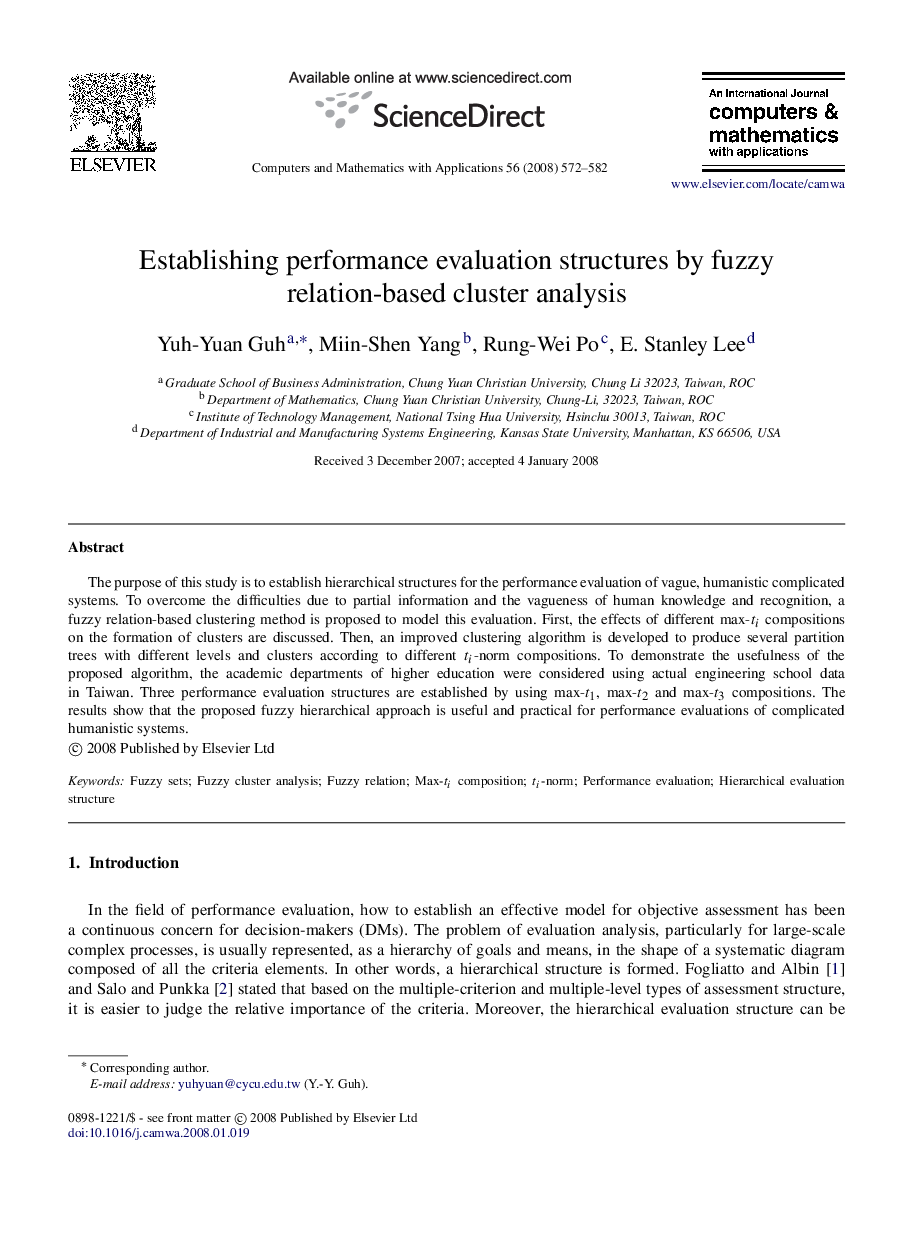| Article ID | Journal | Published Year | Pages | File Type |
|---|---|---|---|---|
| 474288 | Computers & Mathematics with Applications | 2008 | 11 Pages |
The purpose of this study is to establish hierarchical structures for the performance evaluation of vague, humanistic complicated systems. To overcome the difficulties due to partial information and the vagueness of human knowledge and recognition, a fuzzy relation-based clustering method is proposed to model this evaluation. First, the effects of different max-titi compositions on the formation of clusters are discussed. Then, an improved clustering algorithm is developed to produce several partition trees with different levels and clusters according to different titi-norm compositions. To demonstrate the usefulness of the proposed algorithm, the academic departments of higher education were considered using actual engineering school data in Taiwan. Three performance evaluation structures are established by using max-t1t1, max-t2t2 and max-t3t3 compositions. The results show that the proposed fuzzy hierarchical approach is useful and practical for performance evaluations of complicated humanistic systems.
